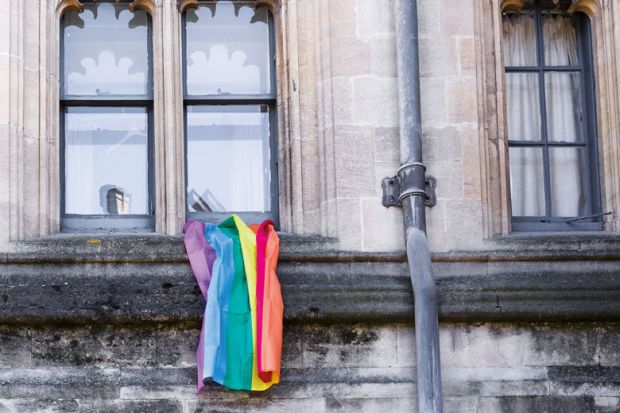More than a quarter of LGBT+ physical scientists have considered leaving their job as a result of an uncomfortable workplace climate, rising to almost half when only trans researchers are counted, a new report has revealed.
A survey of more than 1,000 physical scientists in the UK and Ireland found that 18 per cent of LGBT+ respondents had personally experienced harassment or other exclusionary behaviour, compared with 10 per cent of non-LGBT+ respondents.
Almost a third (32 per cent) of trans respondents said they had experienced such behaviour in the past year as a result of their gender or sexual identity.
Meanwhile, 28 per cent of LGBT+ respondents said they had at some point considered leaving their workplace because of the climate or discrimination towards LGBT+ people, compared with 16 per cent of non-LGBT+ respondents. Nearly half of those who said they were trans had contemplated doing so, with almost 20 per cent of them considering this often.
Almost half of all respondents (49 per cent) said that there was an overall lack of awareness of LGBT+ issues in the workplace.
The report, “Exploring the workplace for LGBT+ physical scientists”, was published by the Institute of Physics, the Royal Astronomical Society and the Royal Society of Chemistry. It was based on a survey disseminated in February 2018, which received 1,025 valid responses. Two-thirds (66 per cent) of respondents were studying in or employed by a university, while about 20 per cent of respondents said they were non-LGBT+.
Just under a fifth (17 per cent) of respondents said they felt that their organisation’s policies and procedures were generally lacking or even discriminatory of LGBT+ staff, rising to 36 per cent among non-binary respondents, while 60 per cent thought institutional policies were supportive or very supportive of LGBT+ staff.
The report includes recommendations of three areas for increased action by employers: providing visible support for LGBT+ staff, with senior leaders and managers proactively speaking out about LGBT+ issues; reviewing and improving policies to ensure that LGBT+ staff are specifically protected; and introducing and improving training on areas such as transgender inclusion, correct pronoun usage, and bystander training.
James Claverley, science governance coordinator at the Office of the Chief Scientist at the National Physical Laboratory, and a member of the diversity and inclusion committee at the Institute of Physics, said that while the survey results were “better than expected…[the] workplace climate is far from acceptable”.
“The data also show that there is significant variation even within the LGBT+ community, with women, non-binary and trans individuals having significantly worse experiences than their cis-gay-male peers. Considering all of this data, we now have no excuse not to improve,” he said.
Register to continue
Why register?
- Registration is free and only takes a moment
- Once registered, you can read 3 articles a month
- Sign up for our newsletter
Subscribe
Or subscribe for unlimited access to:
- Unlimited access to news, views, insights & reviews
- Digital editions
- Digital access to THE’s university and college rankings analysis
Already registered or a current subscriber?








